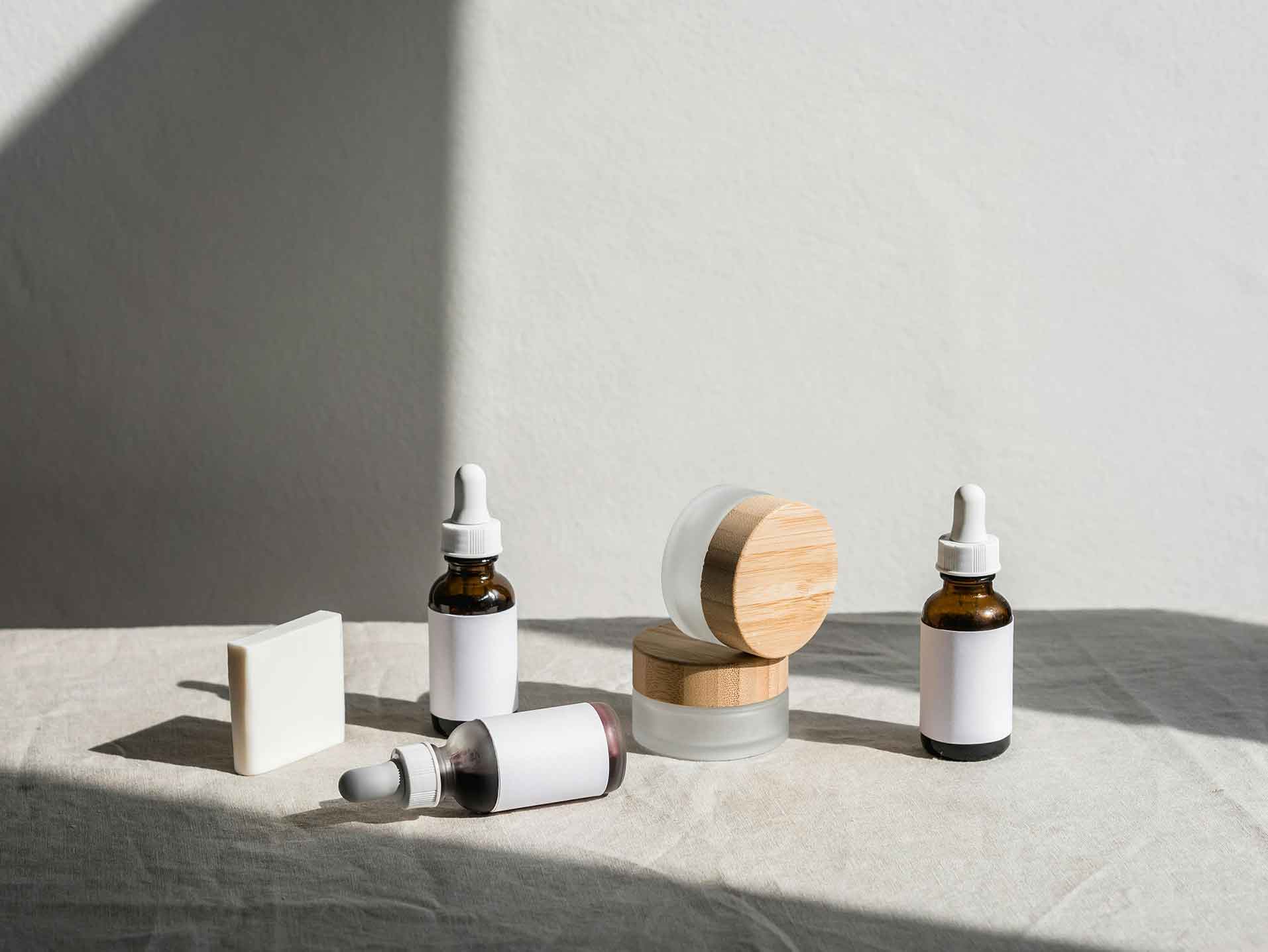In the perpetual quest for a youthful complexion, the beauty and wellness industry is constantly evolving, introducing new ingredients and treatments that promise to turn back the clock. Among the most promising of these are peptides, which have emerged from the realm of biochemistry to become a cornerstone of modern anti-aging skincare.
Backed by a growing body of scientific research, peptide therapy offers a compelling approach to improving skin health from the inside out.
This article delves into the science behind peptides, their benefits for the skin, and how they are being utilized in clinical settings.
What Are Peptides and How Do They Work?
At their core, peptides are short chains of amino acids, the fundamental building blocks of proteins. Proteins like collagen and elastin are essential for maintaining the skin’s structure, firmness, and elasticity [1]. As we age, the production of these proteins naturally declines, leading to common signs of aging such as wrinkles, fine lines, and sagging skin.
Peptides act as messengers, signaling to your skin cells to perform specific functions, including the production of more collagen and elastin. As dermatologist Dr. Wilma Bergfeld explains, “The theory goes that adding peptides to your skin care routine gives your body the chance to create more new proteins” [2].
Peptides used in skincare can be broadly categorized based on their mechanism of action [3]:
|
Peptide Category |
Function |
Example(s) |
|---|---|---|
|
Signal Peptides |
Stimulate the production of collagen, elastin, and other proteins. |
Matrixyl (Palmitoyl Pentapeptide-4) |
|
Carrier Peptides |
Deliver trace elements like copper and manganese to the skin to aid in wound healing and enzymatic processes. |
GHK-Cu (Copper Tripeptide-1) |
|
Neurotransmitter Inhibitor Peptides |
Reduce the appearance of expression lines by inhibiting muscle contraction, offering a topical alternative to Botox. |
Argireline (Acetyl Hexapeptide-3) |
|
Enzyme Inhibitor Peptides |
Prevent the breakdown of collagen and other proteins by inhibiting the enzymes that degrade them. |
Soybean and rice peptides |
The Science-Backed Benefits of Peptides for Skin
The excitement surrounding peptides is not just marketing hype; it is rooted in scientific evidence. Numerous studies have demonstrated the tangible benefits of peptides for skin health. One of the most extensively researched peptides is GHK-Cu, a copper tripeptide that has been shown to have a wide range of regenerative and protective actions [4].
A 2018 review published in the International Journal of Molecular Sciences highlighted GHK-Cu’s ability to “tighten loose skin and reverse thinning of aged skin, repair protective skin barrier proteins, and improve skin firmness, elasticity, and clarity” [4].
Clinical studies have consistently validated these claims. For instance, a 12-week study involving a facial cream containing GHK-Cu resulted in increased skin density and thickness, reduced laxity, and a decrease in fine lines and wrinkles [4]. Another study found that a GHK-Cu eye cream outperformed a vitamin K cream in reducing wrinkles and improving overall appearance around the eyes [4].
Beyond GHK-Cu, other peptides have also shown remarkable results. Matrixyl, for example, has been found to significantly reduce wrinkle volume and depth in clinical trials [4]. These findings underscore the potential of peptides to make a visible difference in the health and appearance of the skin.
Also Read: Nature Sure Aloe Vera: A Natural Detox for Skin and Hair
Peptide Therapy in a Clinical Setting
While topical peptide products are widely available, peptide therapy can also be administered in a clinical setting for more targeted and potent effects. Companies like Relive Health offer personalized peptide therapy programs that are prescribed by medical providers.
These programs often involve a comprehensive consultation, blood analysis, and a custom protocol tailored to the individual’s specific needs and goals. In addition to skin health, these therapies can address a range of concerns, from weight management to improved recovery and sleep.
Relive Health, for instance, offers a variety of peptides, including Sermorelin and Ipamorelin, which are known to stimulate the body’s natural production of growth hormone. This can lead to benefits such as increased collagen production, enhanced fat metabolism, and improved tissue repair [5].
This clinical approach ensures that patients receive medical-grade compounds in a safe and supervised manner, moving beyond the one-size-fits-all nature of over-the-counter products.
What to Consider Before Trying Peptide Therapy
While the science is promising, it is important to approach peptide therapy with a discerning eye. The effectiveness of a peptide product depends not only on the peptides themselves but also on the overall formulation.
As Dr. Bergfeld notes, “it takes good scientists thoughtfully compounding products to get the most out of them” [2]. The stability of the peptides and their ability to penetrate the skin barrier are crucial factors that can vary significantly between products.
For those considering peptide therapy, whether topical or clinical, consulting with a dermatologist or a qualified medical provider is a crucial first step. They can help you navigate the options, assess your individual needs, and recommend a course of action that is both safe and effective. The medical-grade peptide therapy from Relive Health is a great option, and they have locations nationwide.
It is also worth noting that while peptides can be highly effective, they are just one piece of a comprehensive skincare routine. As Dr. Bergfeld emphasizes, “the basis of skin care is to cleanse, moisturize and reduce sun exposure. The rest of it is optional” [2].
The Future of Skincare
Peptide therapy represents a significant advancement in the field of anti-aging and regenerative medicine. With their ability to communicate with cells and stimulate the production of essential proteins, peptides offer a powerful tool for improving skin health and combating the visible signs of aging.
As research continues to uncover the full potential of these remarkable molecules, they are poised to play an increasingly important role in the future of skincare, offering a scientifically backed path to a more youthful and radiant complexion.
Also Read: Glow On the Go: My Honest Review of Nature Sure Pores and Marks SPF 50 Face Oil
References
[1] Pintea, A., Manea, A., et al. (2025). “Peptides: Emerging Candidates for the Prevention and Treatment of Skin Senescence: A Review.” Biomolecules, 15(1), 88. https://pmc.ncbi.nlm.nih.gov/articles/PMC11762834/
[2] Cleveland Clinic. (2024, July 31). “Peptides for Skin Care: Are They Worth It?” Health Essentials. https://health.clevelandclinic.org/peptides-for-skin
[3] Pintea, A., Manea, A., et al. (2025). “Peptides: Emerging Candidates for the Prevention and Treatment of Skin Senescence: A Review.” Biomolecules, 15(1), 88. https://pmc.ncbi.nlm.nih.gov/articles/PMC11762834/
[4] Pickart, L., & Margolina, A. (2018). “Regenerative and Protective Actions of the GHK-Cu Peptide in the Light of the New Gene Data.” International Journal of Molecular Sciences, 19(7), 1987. https://pmc.ncbi.nlm.nih.gov/articles/PMC6073405/
[5] Relive Health. (n.d.). “Peptide Therapy.” https://relivehealth.com/peptide-therapy/




